The ongoing conflict in Gaza continues to raise significant humanitarian and legal concerns, marked by recent events surrounding an aid flotilla and Israeli government collaboration with a local militia.
On June 9, 2025, the "Madleen" aid ship, carrying humanitarian supplies and activists including Greta Thunberg, was intercepted by Israeli forces in international waters approximately 100 nautical miles (185km) from Gaza. This action is widely condemned by various international bodies and governments as a violation of international law and an act of "piracy."
The Madleen, a British-flagged yacht operated by the Freedom Flotilla Coalition (FFC), aimed to deliver a symbolic amount of aid, including baby formula and rice, and to draw international attention to the severe humanitarian crisis in Gaza. Upon interception, the 12 activists and crew members on board were detained and subsequently transported to an Israeli port. Videos released by the FFC showed the unarmed crew with their hands raised as Israeli forces boarded the vessel.
The Israeli government, including Defense Minister Israel Katz, stated that the interception was necessary to prevent the "hate flotilla" from breaking the blockade of Gaza. They referred to the mission as a "selfie yacht" and a "publicity stunt," asserting that the aid would be transferred through "real humanitarian channels." Despite these claims, UN Special Rapporteur on the Occupied Palestinian Territories, Francesca Albanese, and organisations such as Amnesty International have called for the immediate and unconditional release of the vessel and its crew, emphasising Israel's obligations under international law to ensure humanitarian access to Gaza. The incident has also sparked criticism from several countries, including Turkey, Spain and the UK, who urge for the situation to be resolved safely and in line with international humanitarian law.
Yasser Abu Shabab ~ A Warlord in the Making
Yasser Abu Shabab is a nascent warlord, capitalising on the power vacuum and humanitarian crisis in Gaza. His actions and the nature of his group exhibit several defining characteristics of a warlord:
Control of Armed Force: Abu Shabab leads an armed militia, the "Popular Forces" numbering several hundred fighters. This group is equipped with weapons, including Kalashnikov rifles and pistols, indicating a capacity to exert force and control. These arms are supplied by the IDF with the intention that they will be used by militia against Palestinians in Gaza.
Territorial or Resource Control: His group is involved in controlling and "protecting" humanitarian aid convoys and distribution centres. In a desperate humanitarian situation, control over vital resources like food and supplies grants immense power and influence, a hallmark of warlordism.
Personalised Power Structure: The group is loyal to Abu Shabab personally, rather than a formal state or established governing body. He is described as a leader who was previously involved in smuggling and was even imprisoned by Hamas, showing a history of operating outside conventional authority.
Operating Outside State Authority: In the context of a fractured and heavily contested Gaza, Abu Shabab's group functions largely independent of any internationally recognised governmental authority. While they claim to be a "nationalist force," their primary allegiance is to their leader and their immediate interests. Nothing of this speaks of care or concern for the ordinary Palestinian in Gaza.
Criminality and Exploitation: Far from protecting aid, reports from aid workers and Hamas show the group are themselves looting aid trucks. This further cements the warlord image, where personal enrichment and control of illicit activities often go hand in hand with armed power. Many of the weapons are from seized Hamas stockpiles pointing to further opportunism.
While he may claim to be protecting Palestinians or countering Hamas, his armed presence and control over vital resources amidst a desperate population fit the pattern of a warlord who thrives on instability and uses force to carve out a sphere of influence and control.
The Israeli government, driven by Netanyahu's approval, is arming and supporting this militia in Gaza. This group is presented as an alternative force to Hamas. The weapons reportedly include Kalashnikov rifles and pistols, with some sourced from seized Hamas stockpiles.
Yasser Abu Shabab's group, composed of members of the Tarabin Bedouin tribe and some former Hamas prisoners, has a history of involvement in smuggling. The group claims to be a "nationalist force" and "Counter-Terrorism Mechanism," asserting its role in protecting humanitarian aid convoys and distribution centres, particularly those operated by the US- and Israeli-backed Gaza Humanitarian Foundation (GHF). Abu Shabab has publicly denied direct collaboration with Israel, stating that their weapons are locally acquired and that any coordination would be strictly humanitarian and through mediators. This is an outright lie. The GHF, under the control of Trump and the IDF are collaborating with the Shabab militia to control and, if need be, murder the Palestinains seeking aid.
Aid workers and Hamas have witnessed Abu Shabab's group looting aid trucks. The GHF has also claimed they have "no collaboration" with Abu Shabab's organisation, despite overwhelming evidence that shows the militia's involvement in securing GHF distribution points.
The decision by the Israeli government to arm this group has drawn significant criticism within Israel and internationally. Concerns have been raised about the group's criminal background, ties to extremist networks and the risk of these weapons exacerbating internal conflict and violence in Gaza. This policy will lead to increased chaos, aid diversion and further endanger the civilian population in an attempt to deflect blame and turn oppression inward. The model used by the IDF is a playbook copy of the Nazis working with fascist militias in WWII.
The United States has, in various conflicts, sought to leverage local armed groups or and warlords, with mixed and frequently detrimental results. These alliances frequently lead to unintended consequences and prolonged instability.
One notable instance is Somalia in the 1990s. During Operation Restore Hope and later, the US attempted to work with various clan leaders and their militias to stabilise the country and distribute aid. This strategy largely failed. The US found itself entangled in complex clan rivalries, inadvertently empowering certain factions over others. The infamous "Black Hawk Down" incident in Mogadishu in 1993, which resulted in the deaths of 18 US soldiers, was a direct consequence of this intervention, highlighting the dangers of operating in a landscape dominated by competing warlords. The US eventually withdrew, leaving Somalia in a prolonged state of civil war and instability, largely governed by these very warlords. Maybe Hegseth and Trump need to read up on this piece of history
Afghanistan post-2001. Following the overthrow of the Taliban, the US and its allies relied heavily on existing northern alliance commanders and other regional strongmen, many of whom exercised significant control over their territories and had their own private armies. While initially instrumental in combating al-Qaeda and the Taliban, this reliance on warlords contributed to the weakening of the central government in Kabul and the perpetuation of corruption. These local commanders often prioritised their own power and economic interests over national stability, leading to continued inter-factional violence, human rights abuses and undermining efforts at long term nation building. The inability to establish a strong, unified national authority, partly due to the entrenched power of these warlords, significantly hampered the US mission and ultimately contributed to the resurgence of the Taliban and the eventual collapse of the Afghan government in 2021.
In both these cases, the reliance on warlords provided short term tactical advantages but ultimately fostered long term instability, undermined efforts to build legitimate state institutions and exposed US forces to complex and dangerous local dynamics, costing lives and resources. The ethical implications of supporting groups with questionable human rights records or criminal ties also presented significant challenges to US foreign policy objectives and reputation. Perhaps this is a play by Trump to ensure unrest in Gaza to the extent that he claims the need to send in ground troops from the USA. That is, if they are not shooting their own citizenry in California, New York and Delaware.
The events surrounding the Madleen aid ship and the arming of the Abu Shabab militia highlight the ramping up of events aimed at destabilising the already fragile situation in Gaza. The situation is complex with contentious dynamics, drawing international scrutiny over humanitarian access, adherence to international law and the impact of military and political strategies on the civilian population.
And still the murder of children, women and men continues under the support of Donald Trump.
A call to the ICC, which will fall on deaf ears, issue an arrest warrant for Trump and his collaborators for war crimes against the Palestinians in Gaza.
Sources:
Israeli Military Seizes Gaza Freedom Flotilla in International Waters | Truthout
Israel's interception of Madleen and detention of crew bound for Gaza flouts international law
Israel intercepts Gaza-bound aid ship in international waters detaining 12 activists - JURIST
UK wants situation resolved 'safely with restraint' after detention of Gaza aid ship by Israel
'Piracy': World reacts to Israel's seizure of Gaza-bound aid vessel Madleen - Al Jazeera
Israel issues statement after 'unlawfully' detaining Madleen aid ship to Gaza - The National
Israel seizes Gaza-bound boat and detain Greta Thunberg and other activists : NPR
Gaza-bound aid boat carrying Greta Thunberg intercepted as Israel says 'show is over'
Madleen: Israel warns it will stop aid yacht reaching Gaza - BBC News
Gaza activists' aid boat with Greta Thunberg on board about to dock in Israel - live updates
What happens next to the Gaza flotilla's Madleen and its crew? - Al Jazeera
Madleen Freedom Flotilla Ship - Early Day Motions - UK Parliament
Who is on board the 'diverted' Gaza aid boat with Greta Thunberg? - Sky News
Israel seizes Gaza-bound aid boat Madleen, detaining Greta Thunberg and other activists
Madleen Gaza flotilla live: Greta Thunberg, 11 activists in Israel custody - Al Jazeera
Israel detains Gaza-bound 'Freedom Flotilla' carrying Greta Thunberg - Euractiv
GHF says aid site closed due to crowd 'chaos,' as Hamas authorities claim 6 killed
Netanyahu admits Israel backing 'criminal' groups, rivals of Hamas, in Gaza - Al Jazeera
As Gazans clamor for aid, looting and shootings underscore new dangers
Who Is Yasser Abu Shabab? | Gaza, Biography, Militia, Israel, Hamas, & Facts | Britannica
Head of Gaza militia cited denying Israel support, demanding Hamas cede power
Israel intercepts Gaza-bound ship with Greta Thunberg and other activists - NPR
Abu Shabab militia secures Rafah aid convoys, receives Israeli weapons | The Jerusalem Post
Yasser al-Shabab, the Gaza militia leader 'with ties to Israel' - The New Arab
Coalition in uproar over reported arming of Gaza militias - Ynetnews
The real reason why Israel is arming gangs in Gaza - Al Jazeera
Netanyahu confirms Israel arming clans opposed to Hamas in Gaza - BBC News
Israel providing guns to Gaza gang to bolster opposition to Hamas

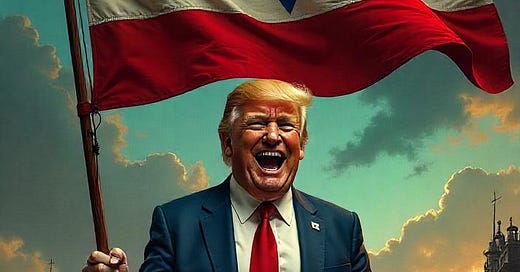



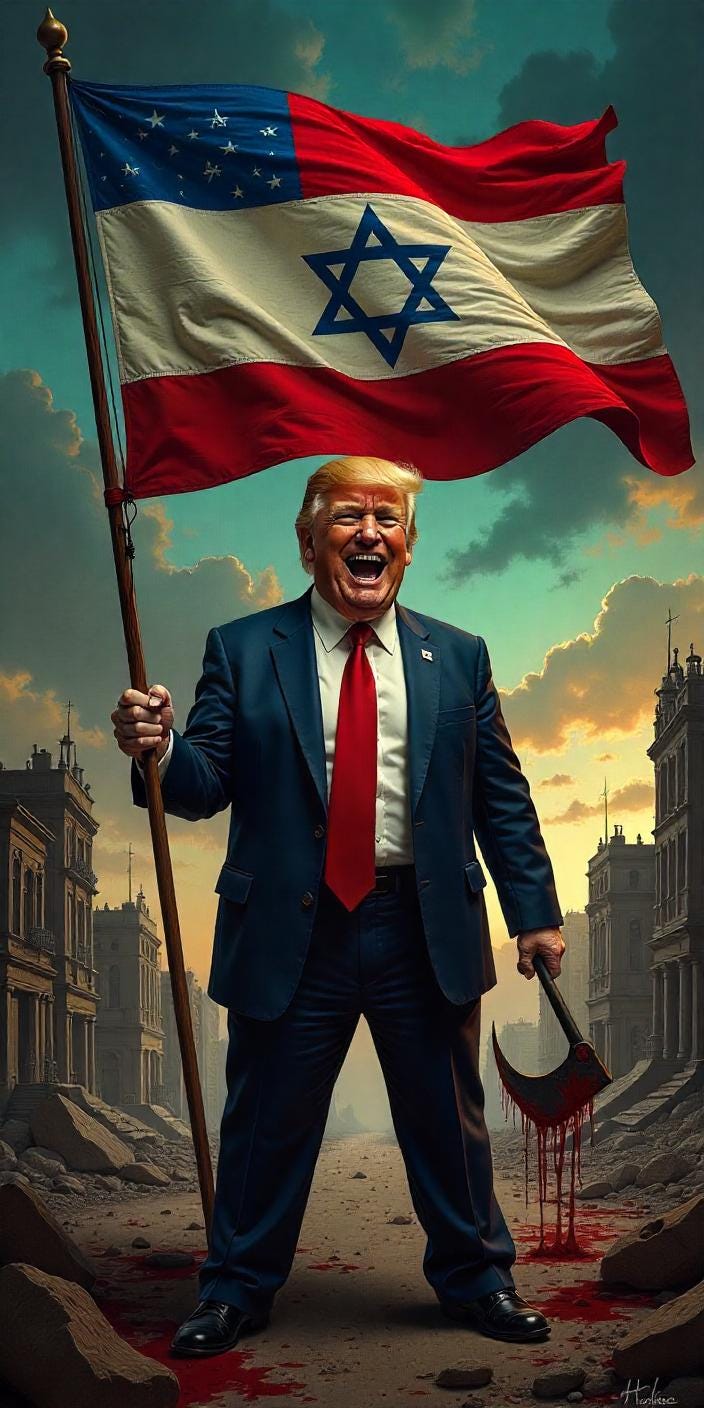

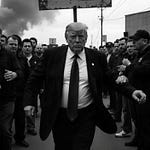




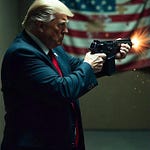
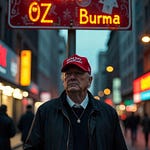
Share this post